Canada welcomes millions of visitors every year, but even the most well-meaning tourists unknowingly break a few of our unspoken rules. We’re too polite to call them out — at least out loud — but every local has noticed. From tipping customs to winter etiquette, these aren’t laws; they’re habits built from decades of shared respect, courtesy, and occasional sarcasm. Here are 18 rules tourists break without realizing.
Forgetting to Tip

Tipping is built into our social DNA. Restaurant servers, baristas, and taxi drivers all depend on it. Standard practice is 15–20%, sometimes more for exceptional service. Tourists from countries without tipping cultures often forget, assuming staff are fully paid. They’re not. Our minimum wage system expects gratuity to close the gap. Skipping the tip feels disrespectful, even when accidental. A good rule of thumb: if someone brings you food or drives you somewhere, they’ve earned at least a small thank-you.
Ignoring Personal Space
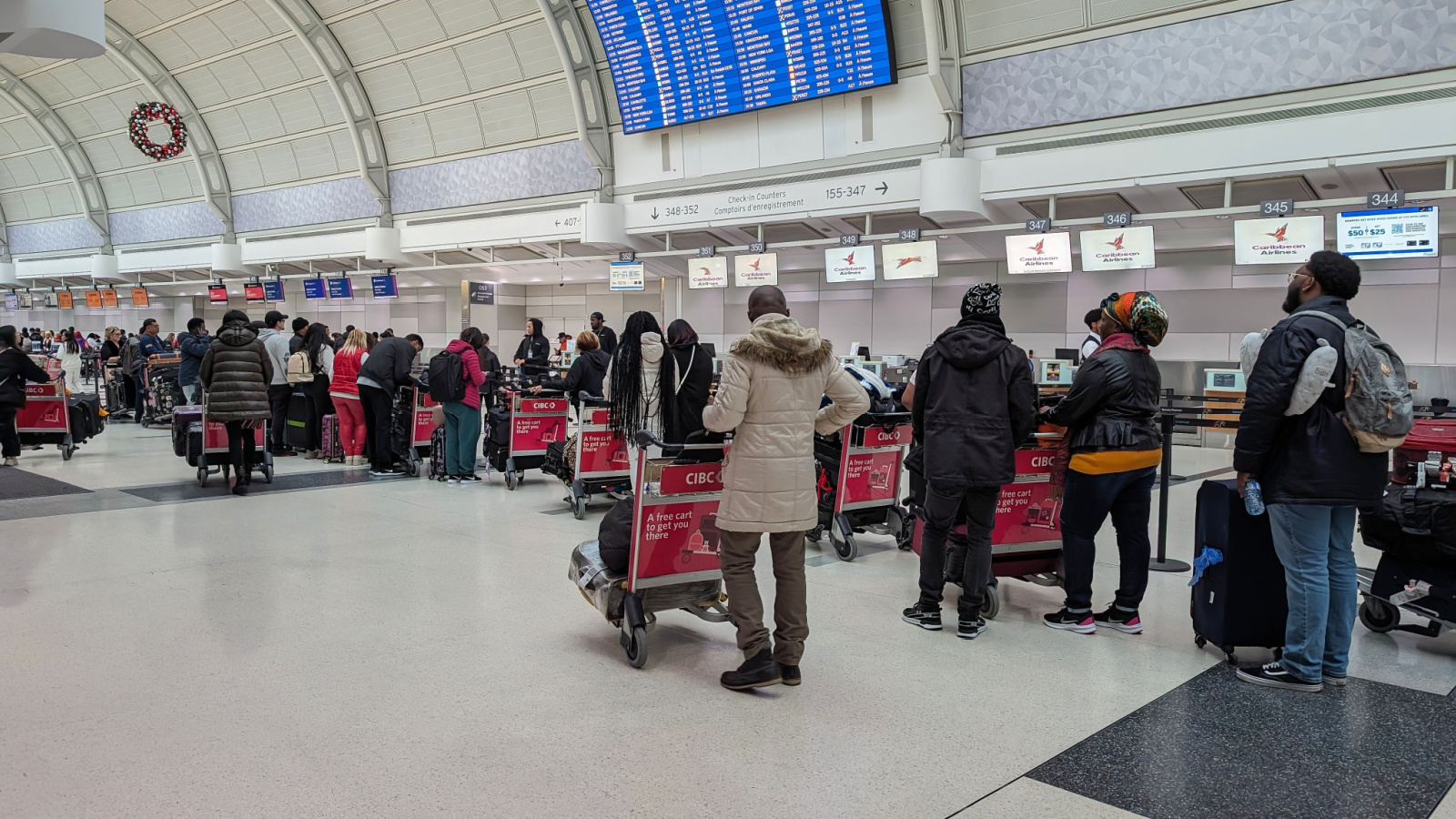
Canadians love friendliness but also deeply value personal space. It’s our invisible comfort bubble, especially in lines or public transit. Stand too close, and you’ll feel people inch away politely. We won’t say anything — we’ll just silently hope you move. It’s not coldness; it’s courtesy. Space means respect here. In crowded cities like Toronto or Vancouver, locals naturally leave a small gap in queues. It’s our way of acknowledging each other’s presence without intruding. Visitors from densely packed countries often miss this cue. But in Canada, proximity equals pressure. Give people room, and you’ll earn quiet appreciation.
Talking Too Loudly

Canada’s social soundtrack is soft-spoken. Whether on a bus, in a café, or at a park, loud conversations feel out of tune. We value calm environments. Tourists often bring big voices from busier cultures, not realizing it breaks the unspoken peace. It’s not that Canadians dislike chatter — we just prefer it at conversational volume. Public spaces are shared sanctuaries, not personal stages. Speaking too loudly in restaurants or trains draws subtle side-eyes and gentle discomfort. Keep tones friendly but contained. You’ll notice how easily Canadians open up when you match their pace.
Walking on the Wrong Side of the Sidewalk
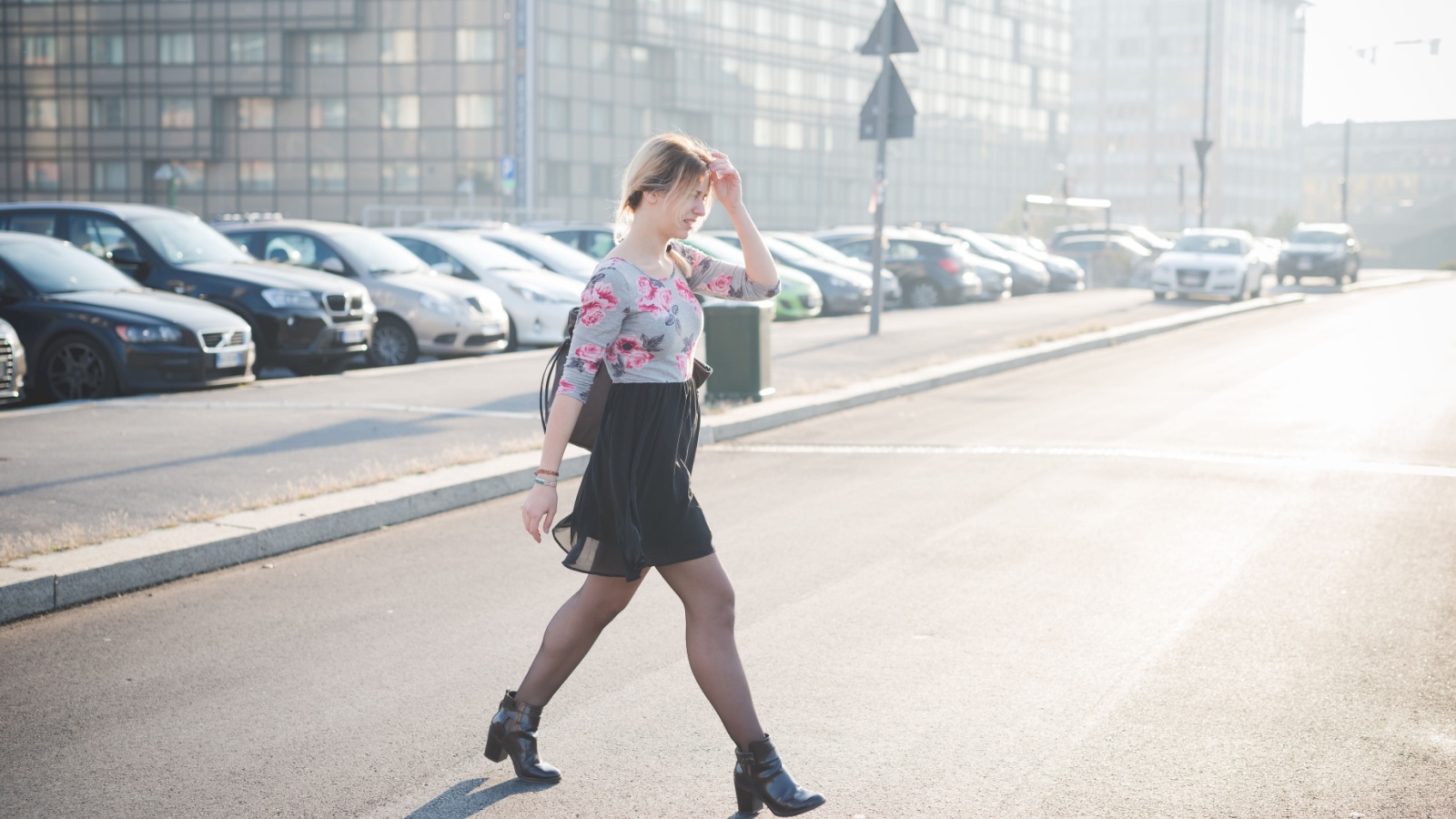
In Canada, sidewalks flow like roads: keep right, pass left. It’s simple, but tourists often wander unpredictably, creating chaos in downtown crowds. It’s not malicious — just unawareness. Still, for locals rushing to work, it’s pure frustration. Blocking the path or stopping abruptly is like slamming brakes on a highway. You’ll feel the polite sighs behind you. In busy cities, sidewalk etiquette is choreography. Walk with purpose, move aside for photos, and don’t form human barricades with your group.
Standing Too Close to Wildlife
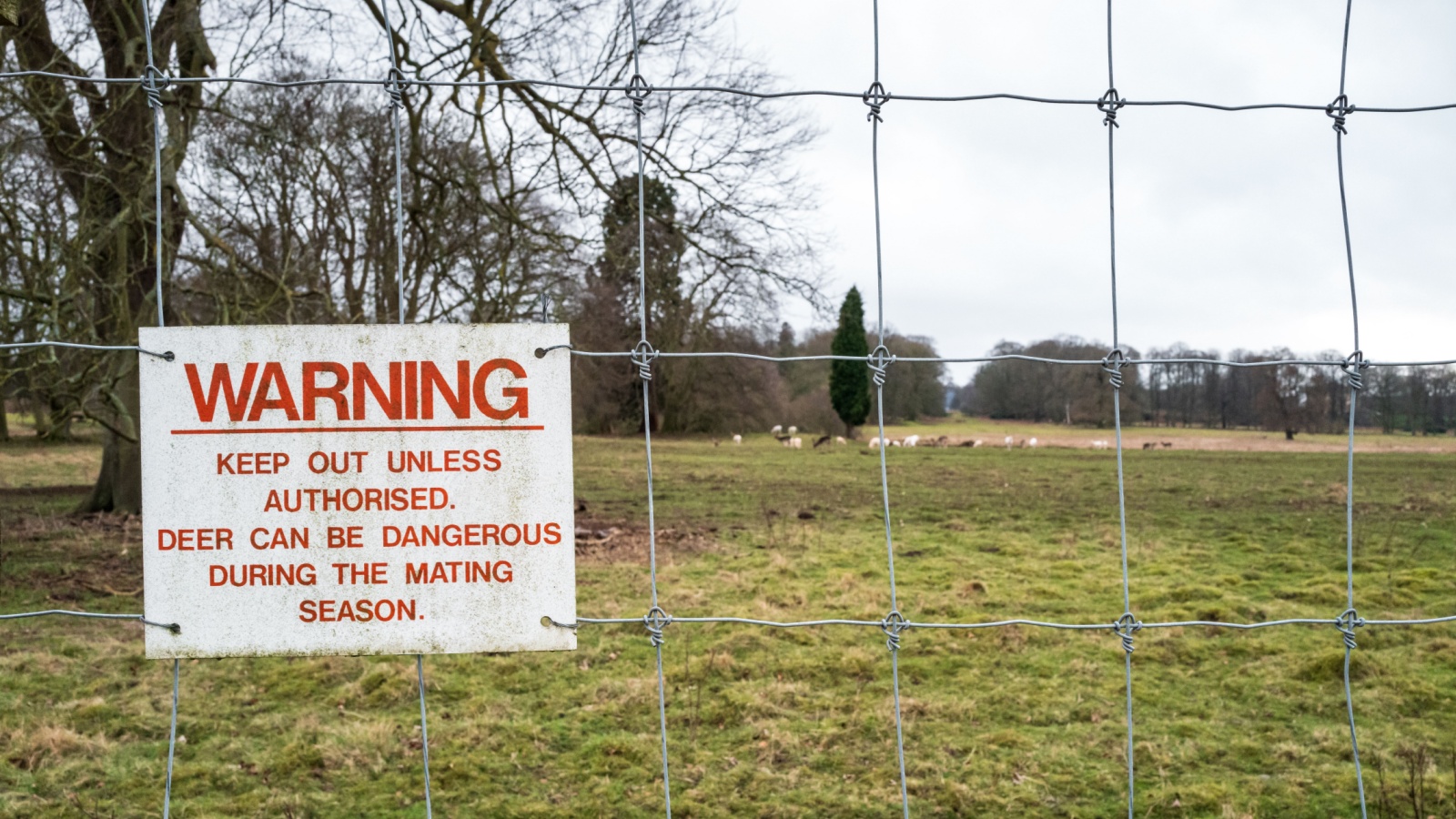
Canada’s wilderness feels magical: Elk, bears, and moose right off the highway. But “close enough for a selfie” is never close enough for safety. Tourists often underestimate how dangerous wildlife can be, forgetting that these aren’t zoo animals. Even a calm-looking moose can charge without warning. Parks Canada signs aren’t suggestions; they’re survival guides. Locals respect a 30–50 metre buffer for large animals and stay in vehicles when possible. Getting too close endangers both humans and wildlife. If you wouldn’t approach a stranger’s dog uninvited, don’t approach a grizzly. Nature deserves admiration, not intrusion.
Littering
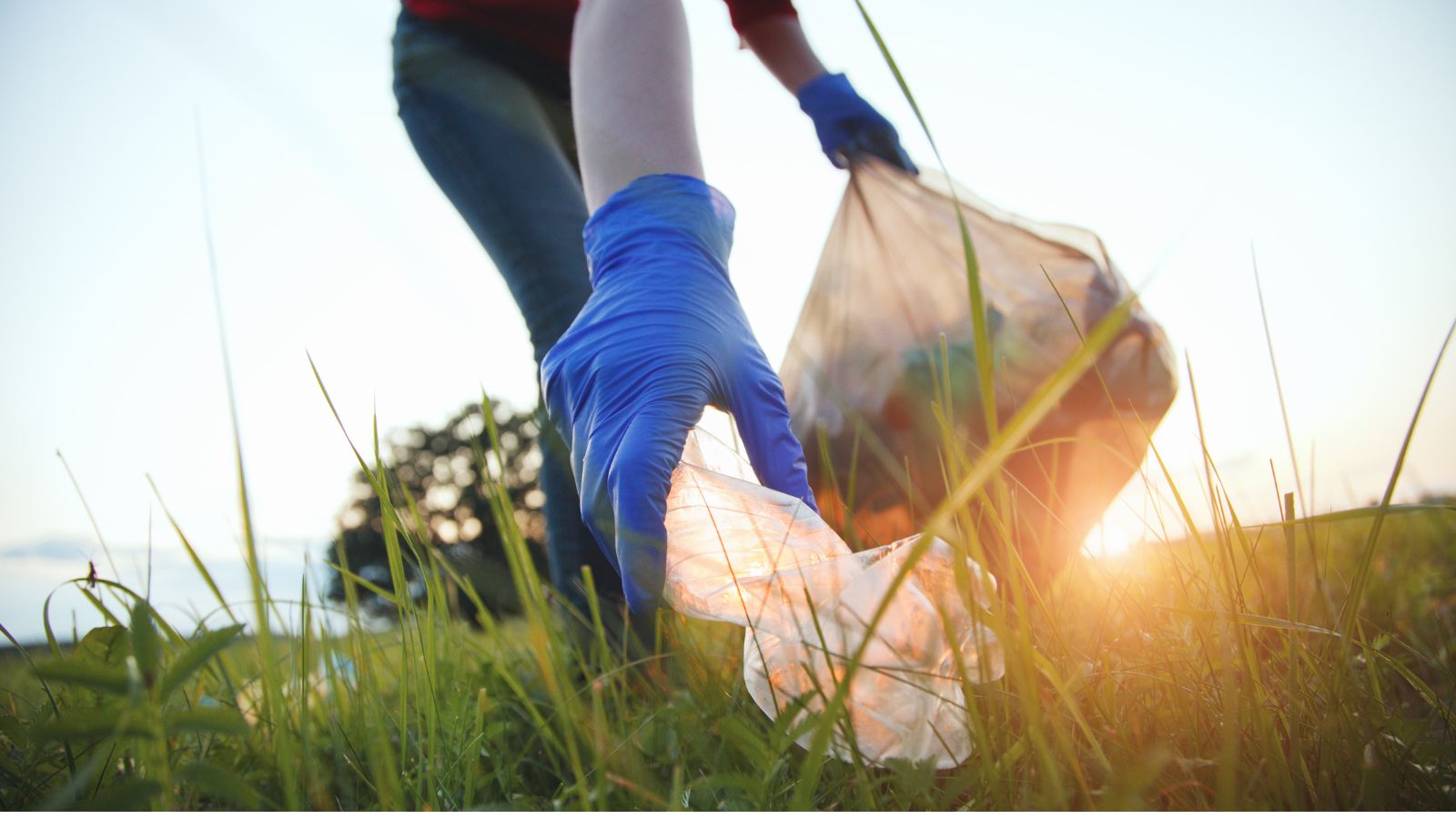
Nothing irritates Canadians faster than seeing litter in a park or along a hiking trail. We take pride in our clean cities and vast, pristine landscapes. Even tossing a coffee cup “near” a bin feels like vandalism here. Locals carry trash out of national parks if bins are full. Tourists sometimes underestimate how seriously we take environmental responsibility. Canada’s beauty survives because its people protect it daily. If you visit, leave no trace — not even a napkin.
Forgetting to Yield to Pedestrians
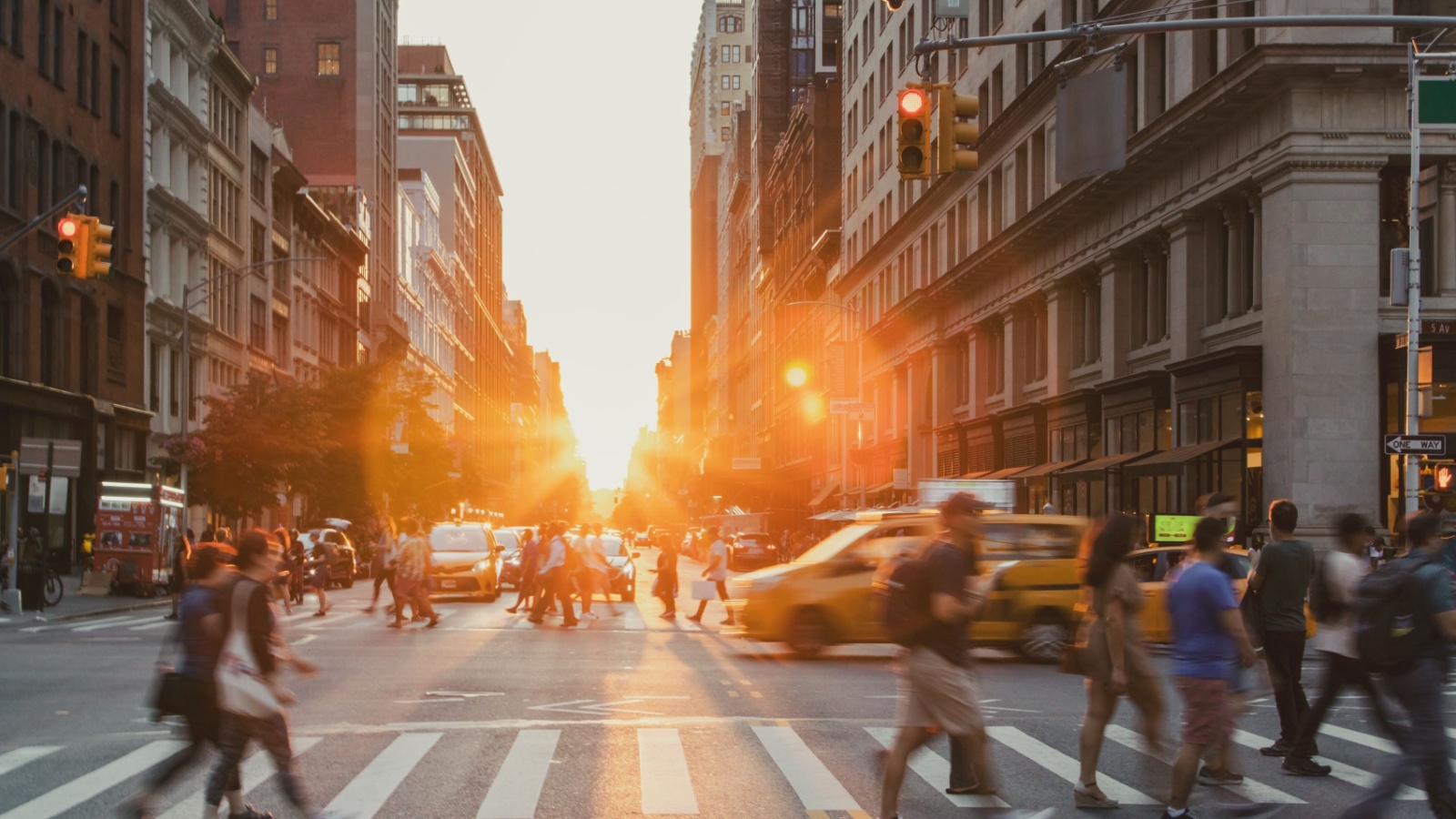
In most of Canada, pedestrians rule. At crosswalks, cars stop — no exceptions. Tourists unfamiliar with this can create chaos by rolling through or ignoring signals. Drivers here anticipate walkers, especially in smaller towns where courtesy comes before convenience. Even cyclists follow suit. Failing to yield earns glares faster than honks. For Canadians, road respect is cultural glue — a mix of patience and predictability. If someone steps toward the crosswalk, stop early and smile. Tourists often forget this, treating crosswalks like obstacles.
Misusing “Sorry”

“Sorry” is sacred in Canada. We use it for bumps, delays, and even other people’s mistakes. Tourists sometimes misunderstand, either mocking it or using it sarcastically. That’s where things go wrong. We don’t apologize for existing. We apologize to make existence smoother. Misusing it breaks the rhythm of kindness that keeps this country calm. Say “sorry” sincerely, not ironically. It’s a social handshake, not a punchline.
Feeding the Wildlife
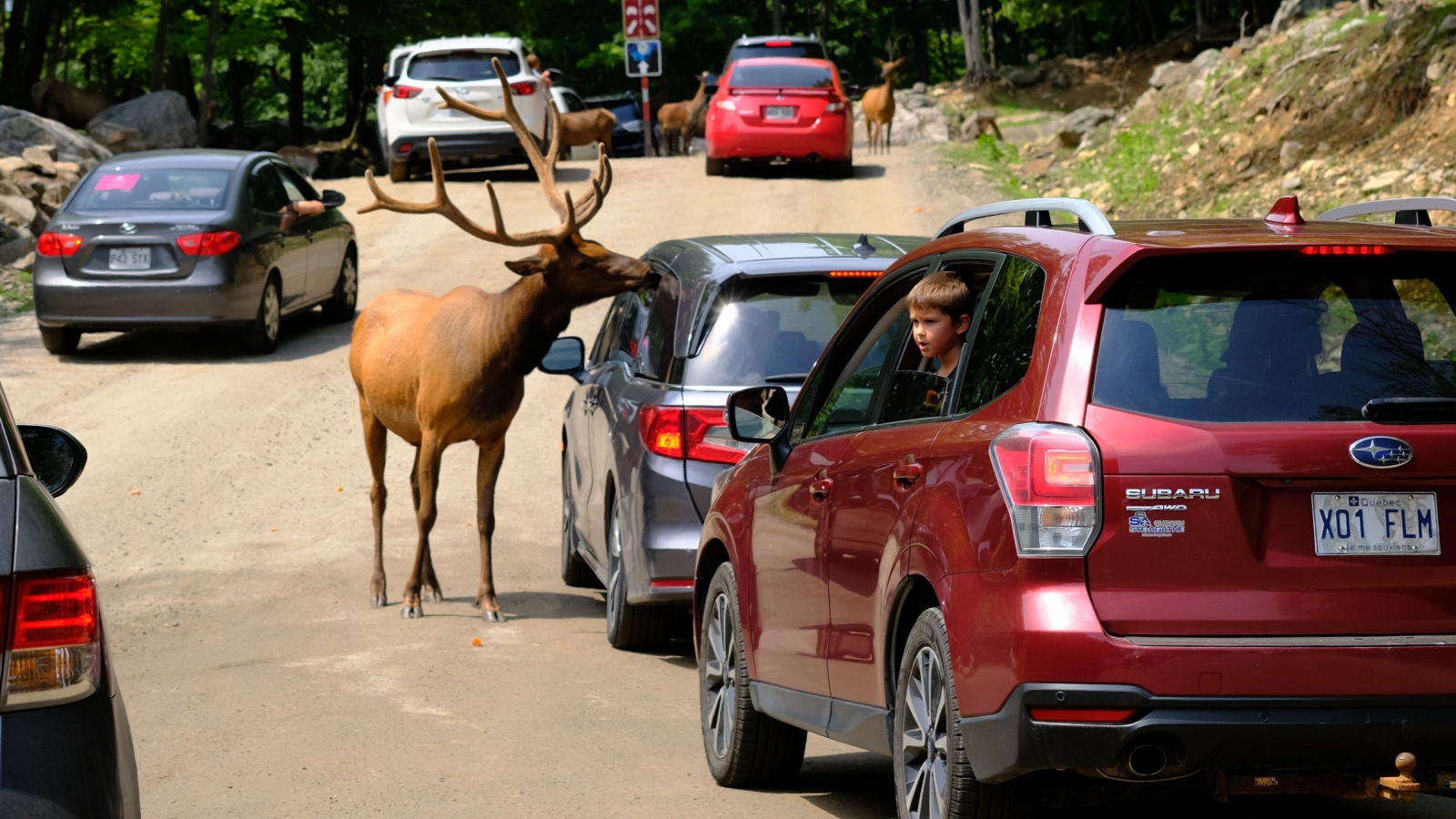
It seems harmless: tossing bread to ducks or snacks to squirrels. But in Canada, feeding wildlife is frowned upon — sometimes even illegal. It alters animal behaviour and endangers both humans and habitats. Tourists mean well, but forget that nature balances best when left alone. In Banff or Jasper, hand-fed animals lose fear, leading to tragic encounters later. Locals know the rule: admire, don’t interfere. Feeding wildlife creates dependency, not friendship. That “cute” chipmunk selfie often ends badly for the chipmunk.
Blocking Escalators
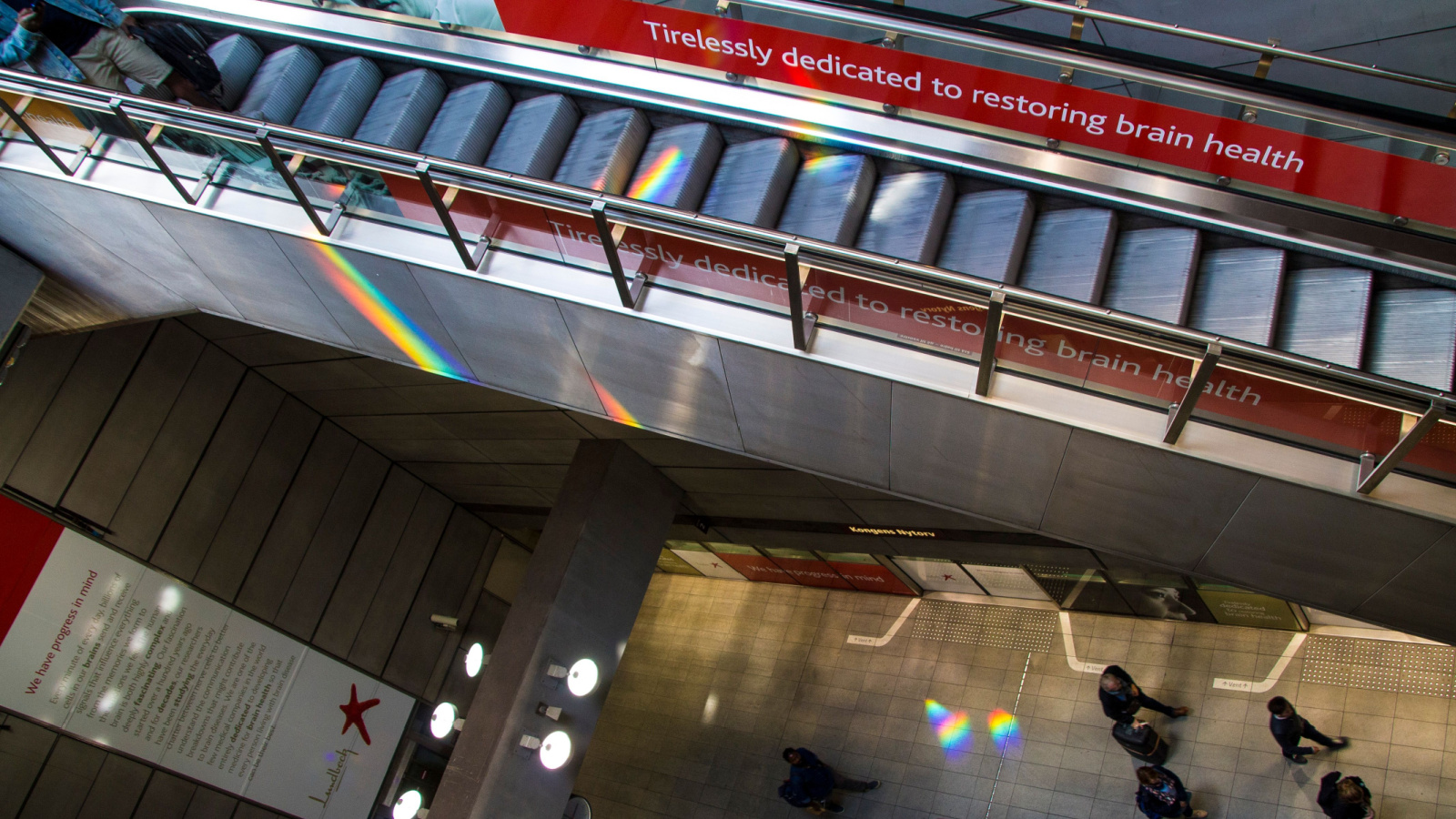
Every Canadian transit rider knows: stand on the right, walk on the left. Escalators are two-lane highways for people. Tourists who stand side by side create traffic jams and frustration. We won’t yell. We’ll sigh quietly and plan polite revenge. In cities like Toronto, Vancouver, and Calgary, this rule is sacred. Locals rushing to work rely on clear left lanes to keep crowds flowing smoothly. Standing on both sides’ signals obliviousness, not defiance. It’s a small courtesy with a big impact.
Complaining About the Weather (Too Seriously)
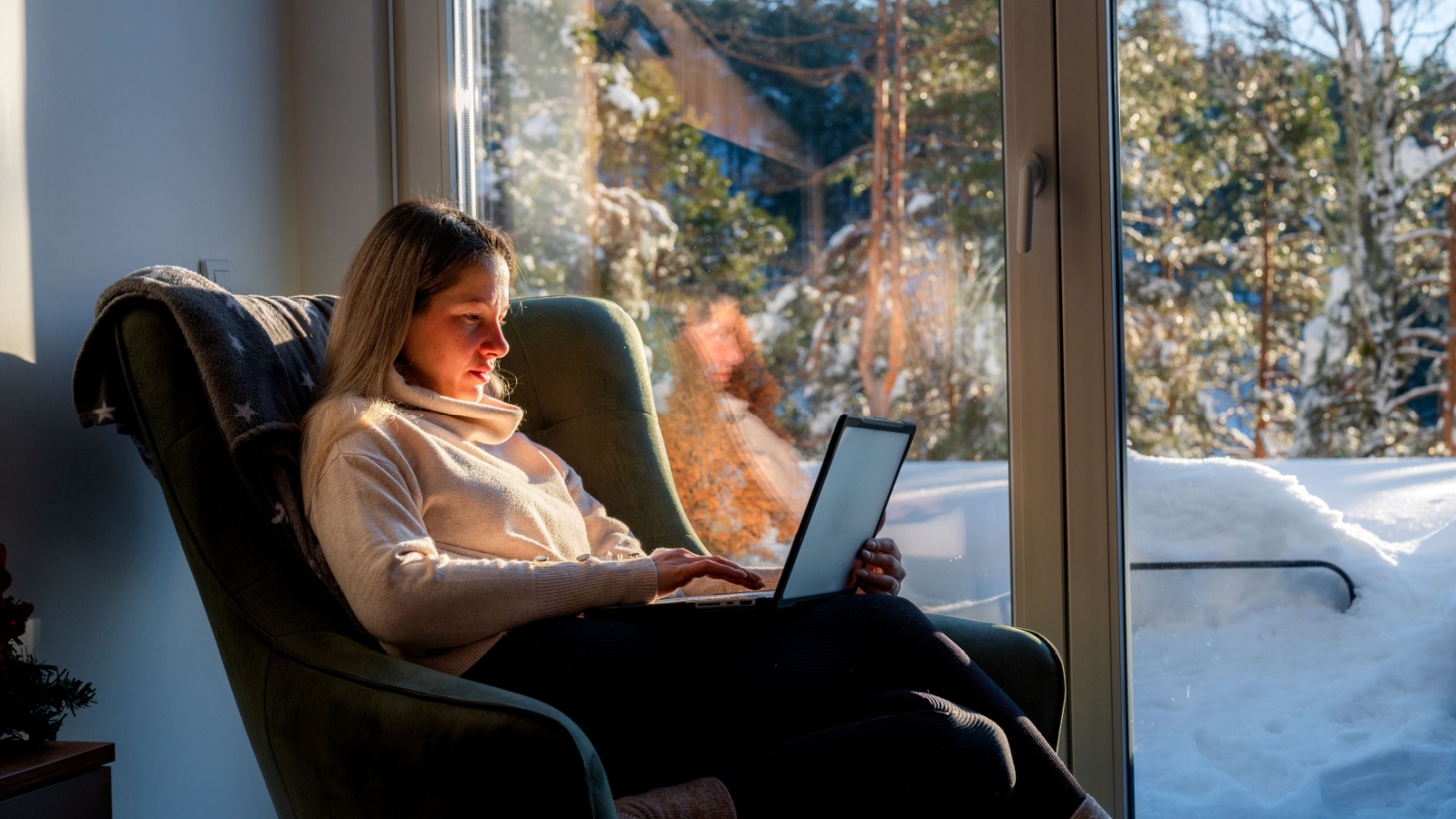
Yes, it’s cold. Yes, it snows in April. But Canadians earned the right to complain — lightly, humorously, and always with a grin. Tourists who whine dramatically about winter or rain break the unwritten code of Prairie patience. We don’t pretend to love bad weather; we just survive it proudly. A proper Canadian complaint includes humour and perspective: “At least the mosquitoes aren’t out yet.” Overreact, and you’ll lose the room instantly. Locals bond through mild misery, not dramatic outrage. Winter’s harshness is our unifier.
Skipping Out on Recycling
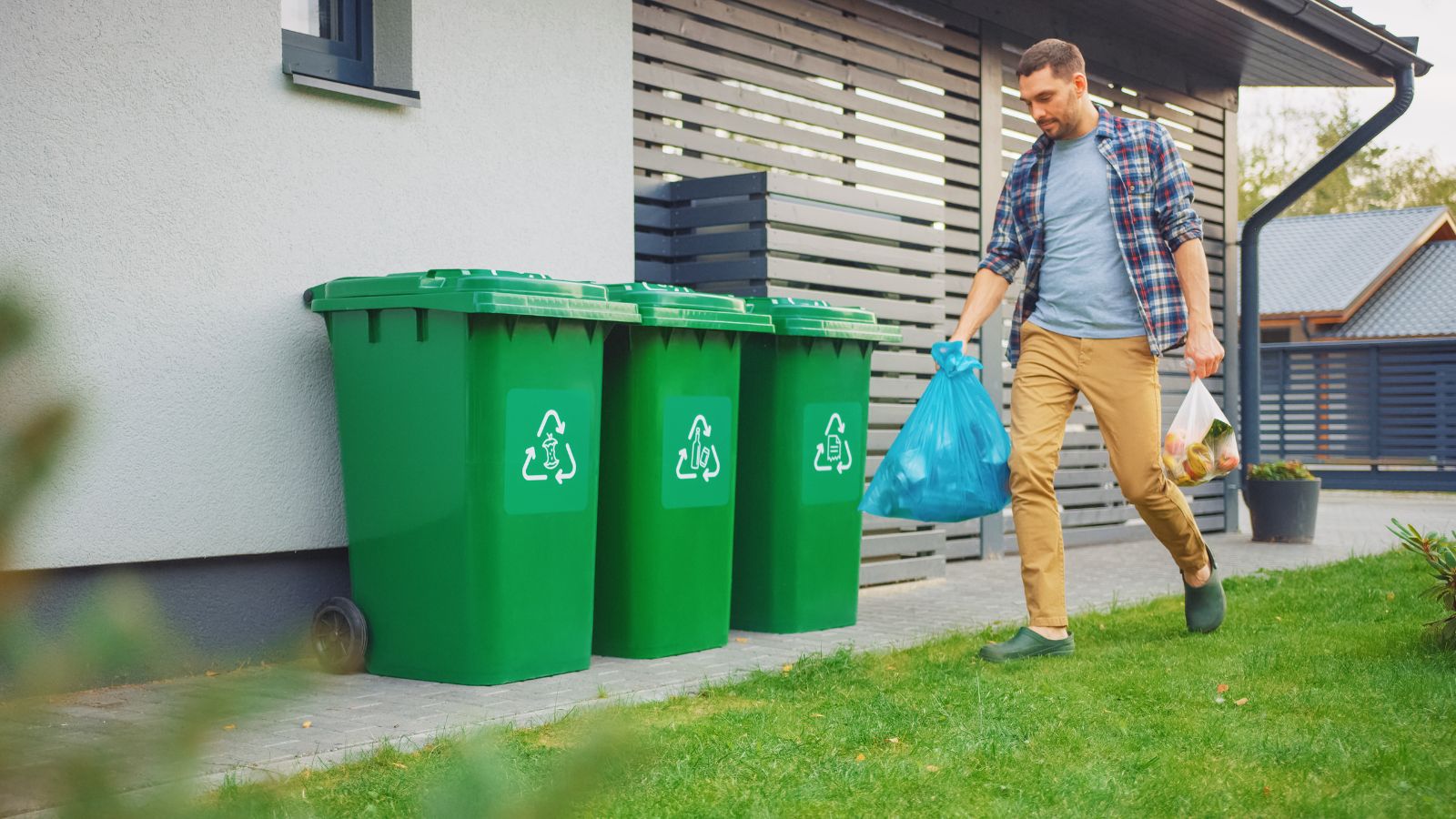
Canadians recycle instinctively. Blue bins, green bins, compost bins — we sort like it’s an Olympic event. Tourists who toss bottles into trash cans raise silent eyebrows everywhere. In hotels, parks, and airports, recycling bins are clearly labelled. It’s not about perfection; it’s about participation. Even small gestures matter. We take pride in cleanliness, and recycling is part of that pride. Locals will quietly fix your mistake but remember your face forever. Sorting waste here is normal life. Learn the bins, follow the colours, and you’ll blend in perfectly.
Forgetting to Remove Shoes Indoors
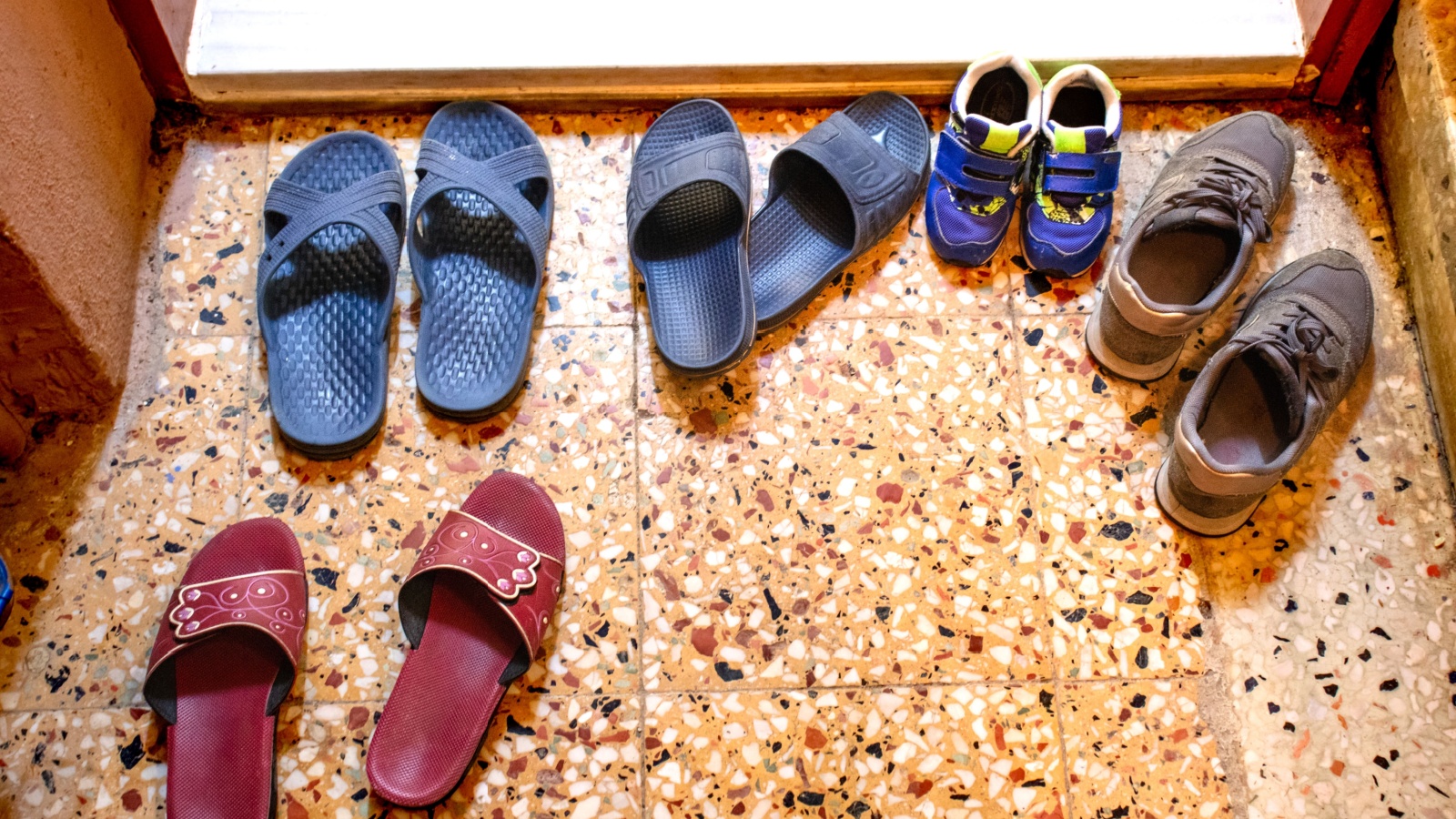
In Canada, leaving shoes on indoors is offensive. Mud, snow, salt, and slush all end up on our floors otherwise. Every doorway signals the same rule: shoes off, slippers on. Tourists sometimes miss the cue, stepping inside fully booted, while hosts smile painfully and pray for the mop. It’s not hostility — it’s hygiene. Canadians built this ritual from necessity, not snobbery. Even apartments in downtown Toronto have shoe racks by the door. When in doubt, ask: “Shoes on or off?” The answer is always “off.”
Forgetting to Wave After a Lane Merge
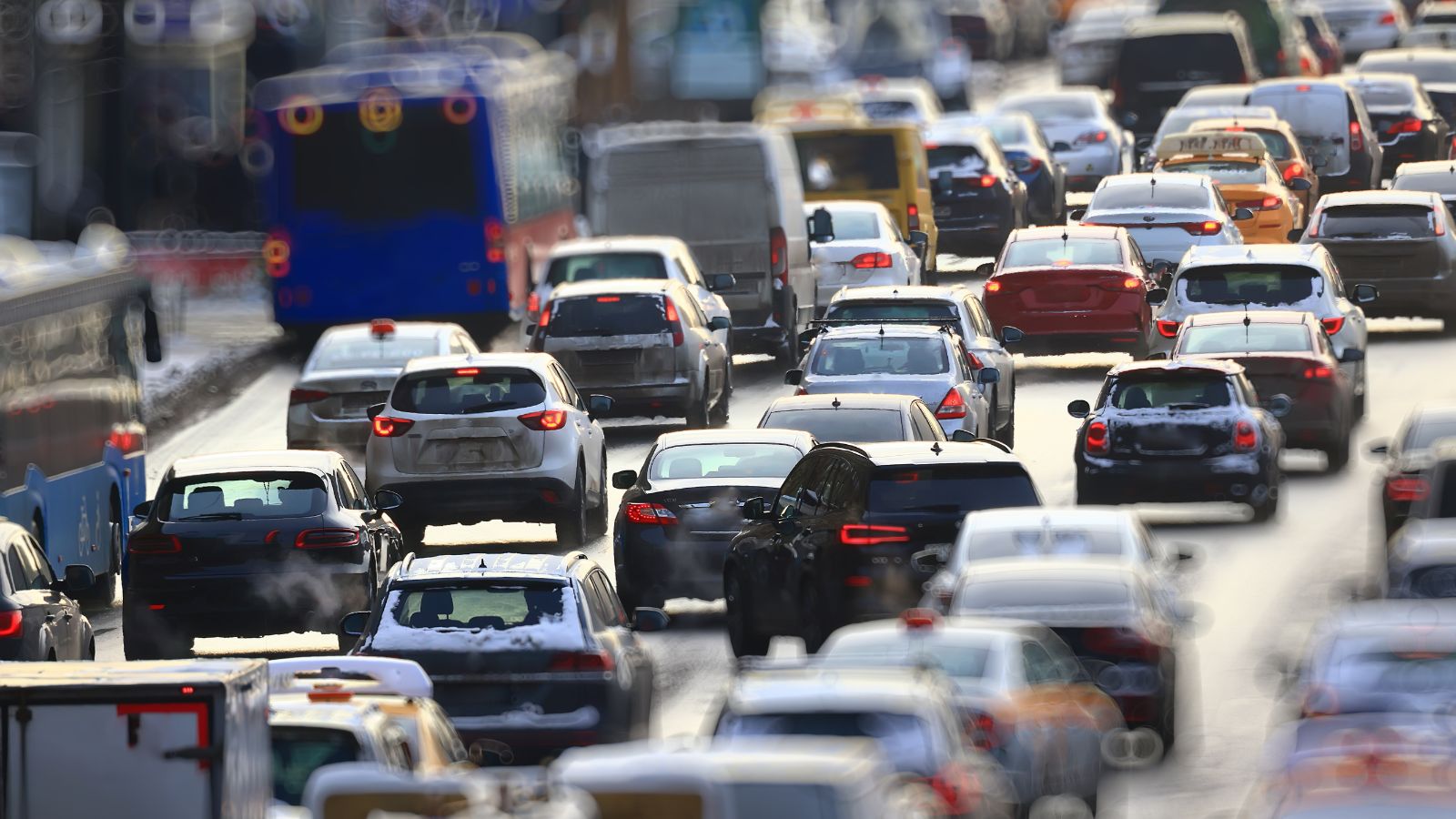
Canadian drivers believe in gratitude on wheels. Merge successfully? Wave. Someone lets you in during rush hour? Wave again. That subtle flick of the wrist is sacred communication. Tourists often skip it, unaware of the offense. The wave says, “Thanks for not hitting me,” but also, “We’re good, eh?” Ignoring it feels like skipping “thank you” in conversation. You’ll never hear honking rage — just collective disappointment. Whether in Alberta’s traffic or Nova Scotia’s country roads, the rule stays firm.
Feeding Pigeons or Seagulls is a No
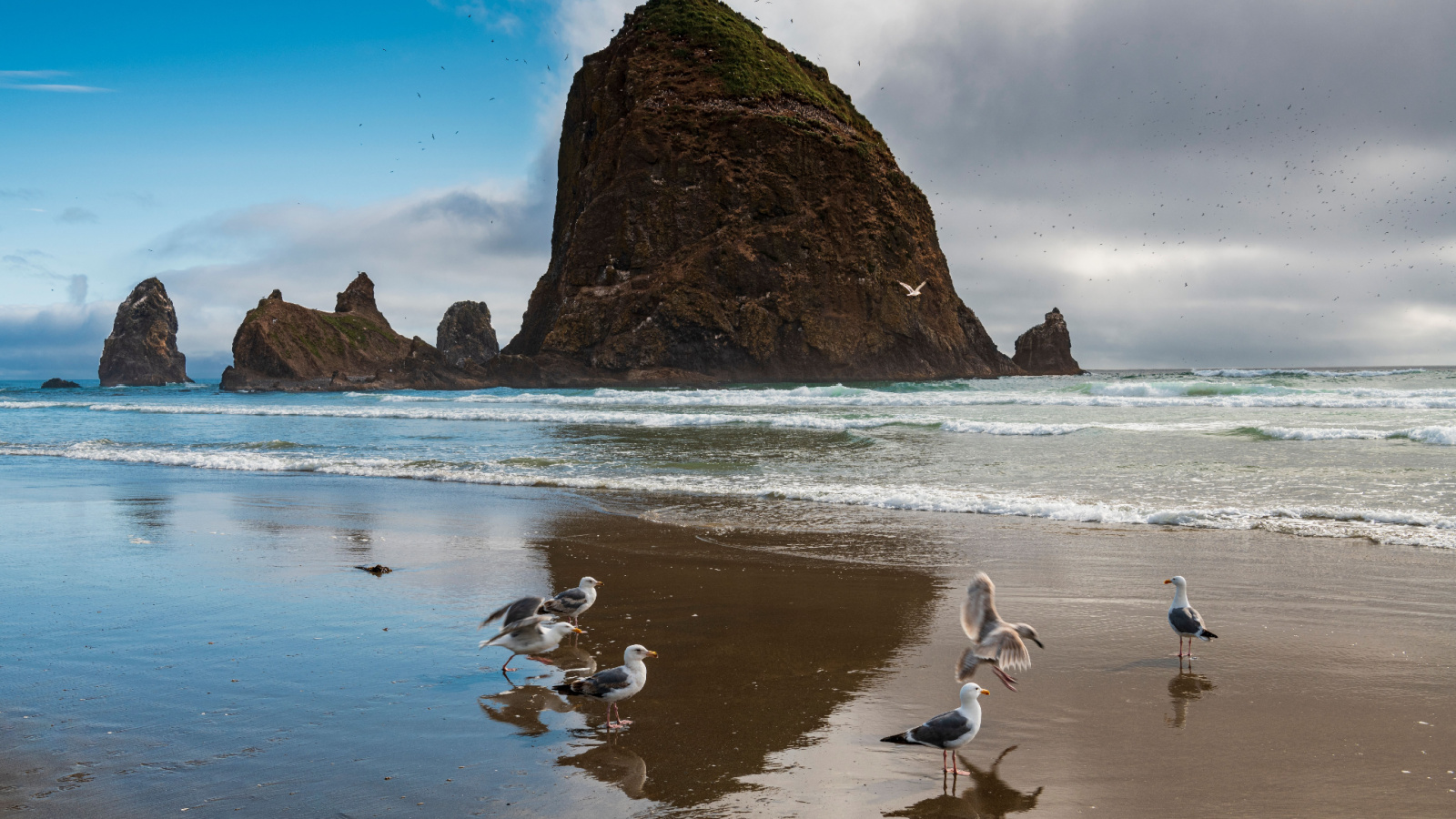
Feeding birds seems innocent, but in Canada, it’s practically a public disturbance. Once fed, flocks multiply faster than Wi-Fi signals. Waterfronts in Toronto, Vancouver, and Halifax have clear signs forbidding it. Still, some tourists toss crumbs “for fun,” unaware they’re starting aerial riots. Beyond nuisance, feeding birds disrupts urban ecosystems and encourages dependence. Locals see it as selfish, not sweet. A sandwich shared with one seagull quickly becomes a mob scene. It’s one of the fastest ways to go from admired visitor to public enemy number one.
Forgetting the Tim Hortons Line Code

Tim Hortons isn’t just a coffee shop — it’s a Canadian institution. Lines form with the discipline of an Olympic relay team. Tourists who try to “just grab a donut” out of order commit social treason. Every Canadian knows: Wait your turn, order efficiently, and move aside. The flow is flawless when everyone respects it. Tourists who linger at the counter, checking menus, stall the nation’s caffeine supply chain. Tim’s etiquette is sacred: quick choices, exact change, grateful smile. Follow it, and you’ll earn nods of approval from coast to coast.
Blocking Scenic Photo Spots
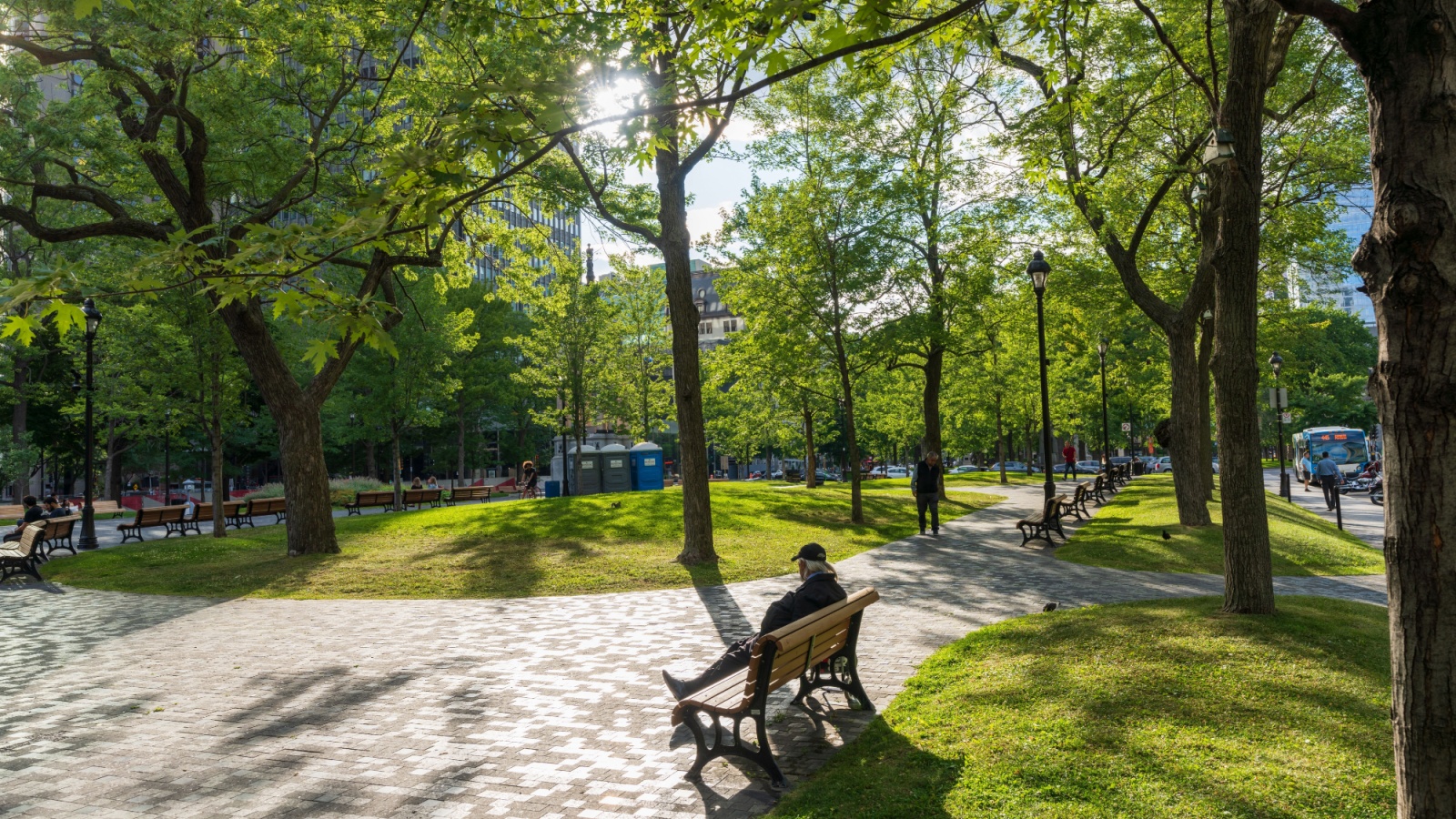
Canada’s landscapes are breathtaking — lakes so still they reflect the sky, peaks glowing gold at sunset. But nothing breaks the spell faster than a crowd hogging the perfect spot for 30 selfies. Tourists often forget to share the view. Locals step aside quickly, take one photo, and move on. It’s an unspoken efficiency born of respect for others’ awe. Blocking trails or scenic lookouts isn’t just inconsiderate; it ruins moments. Share the view; don’t own it. You’ll find Canadians always make room for each other.
Ignoring Queue Order
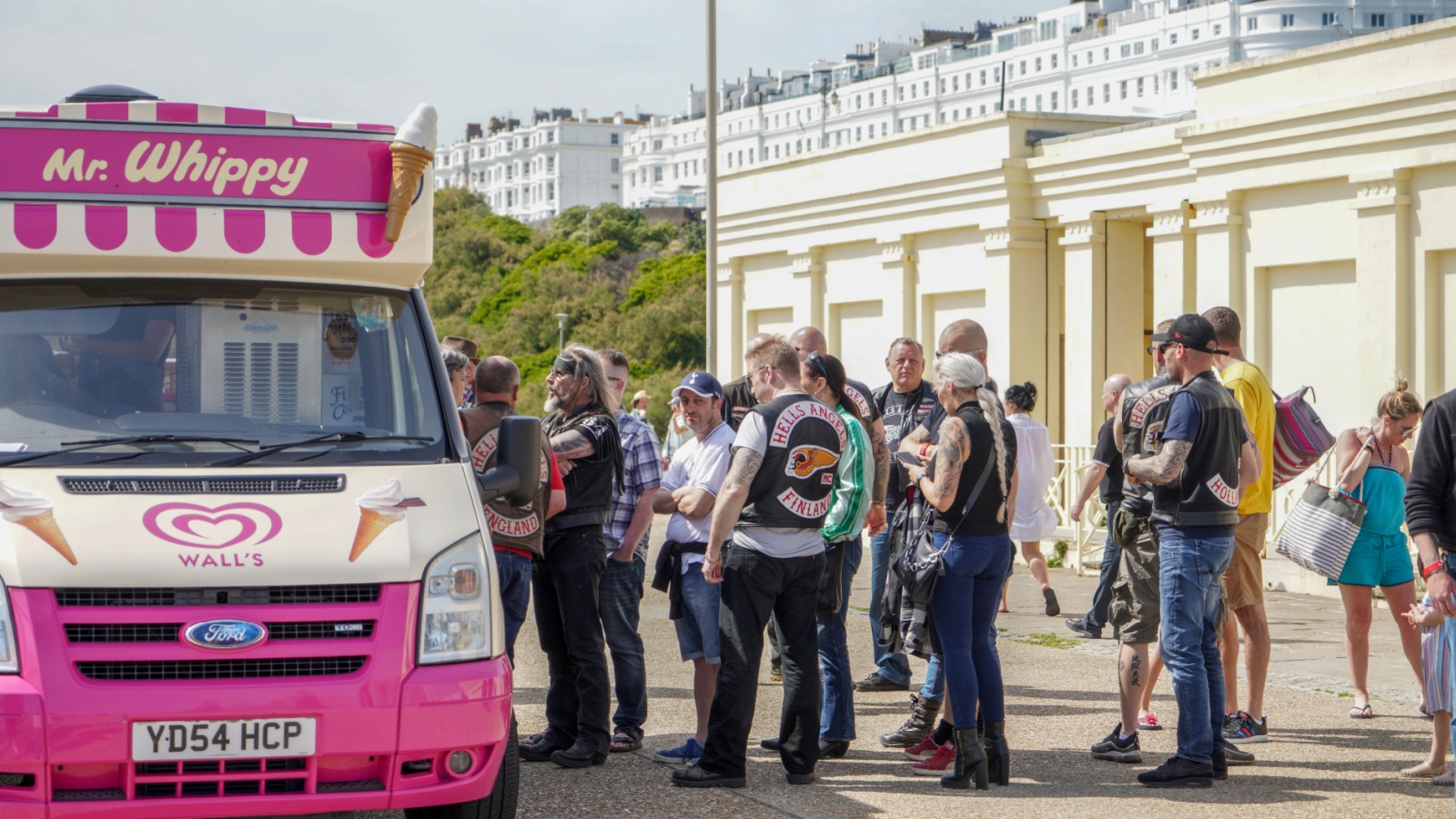
Cutting the line anywhere in Canada — grocery stores, ferries, concerts — is a cultural crime. We queue with quiet precision and fierce fairness. Tourists who slip ahead, pretending not to notice, get noticed instantly. Canadians won’t confront loudly; they’ll exchange glances, sigh softly, and ensure you feel invisible for the rest of the day. Lining up here is an art form built on mutual respect. First-come, first-served. Even at small-town ice cream stands, we honour it.
21 Products Canadians Should Stockpile Before Tariffs Hit

If trade tensions escalate between Canada and the U.S., everyday essentials can suddenly disappear or skyrocket in price. Products like pantry basics and tech must-haves that depend on are deeply tied to cross-border supply chains and are likely to face various kinds of disruptions
21 Products Canadians Should Stockpile Before Tariffs Hit
